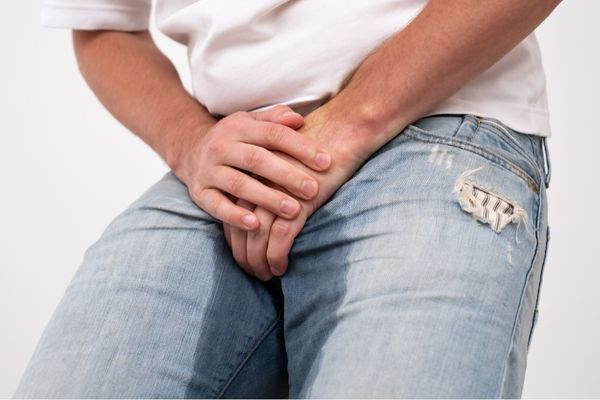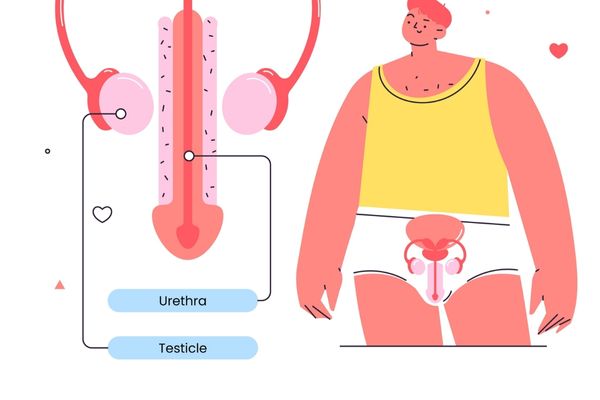Urinary Incontinence Treatments in Turkey
Urinary Incontinence Treatment at Vitale Hospital


What is Urinary Incontinence and How is it Treated in Turkey?
Urinary incontinence, the involuntary leakage of urine, is a common condition affecting millions of people, particularly women. It can result from weakened pelvic muscles, hormonal changes, nerve damage, or underlying health conditions. In Turkey, urinary incontinence treatments range from non-surgical options like pelvic floor therapy to surgical solutions, such as Transobturator Tape (TOT) surgery, offering patients effective relief and improved quality of life.
Table of Contents
ToggleWhat Are The Conditions That Can Cause Continuous Urinary Incontinence?
Continuous urinary incontinence, or the persistent loss of bladder control, can result from a range of underlying medical conditions:
Weak Pelvic Floor Muscles
Conditions like childbirth, aging, or obesity can weaken the pelvic floor muscles, making it difficult to control urine flow effectively.
Nerve Damage
Nerve damage from conditions such as diabetes, multiple sclerosis, or spinal injuries can disrupt signals between the bladder and the brain, leading to uncontrolled leakage.
Overactive Bladder (OAB)
Overactive bladder syndrome causes sudden, intense urges to urinate, often leading to involuntary leakage if the urge isn’t met quickly.
Urinary Tract Infections (UTIs)
Frequent or chronic UTIs can irritate the bladder, resulting in a constant urge to urinate and potential leakage.
Bladder or Pelvic Organ Prolapse
In women, the bladder or other pelvic organs can shift out of place and press against the bladder, causing continuous incontinence.
Medications
Certain medications, including diuretics or those that affect muscle control, may contribute to incontinence by increasing urine production or affecting muscle tone.
Neurological Disorders
Conditions like Parkinson’s disease, stroke, or Alzheimer’s can impair bladder function due to the effect on muscle control or cognition.
Who are Suitable Candidates for Urinary Incontinence Treatments in Turkey?
Ideal candidates for urinary incontinence treatment in Turkey include individuals who:
- Experience symptoms such as frequent or sudden urges to urinate, leakage, or loss of bladder control that interfere with daily life.
- Have tried non-surgical approaches, such as lifestyle changes or pelvic floor exercises, without achieving sufficient improvement.
- Are in good overall health and are looking for safe, effective options to manage or correct urinary incontinence.
A consultation with a specialist can determine the best approach based on the severity of the incontinence, underlying causes, and patient preferences. Vitale Hospital provide tailored treatment plans to ensure that each patient receives appropriate care to address their specific condition.
Urinary Incontinence Treatment Methods in Turkey
Urinary incontinence treatment methods in Turkey offer patients a wide range of solutions, from conservative therapies to advanced surgical options.Here’s an overview of the common methods available:
Strengthening the pelvic floor muscles can improve bladder control and reduce mild urinary incontinence. These exercises are non-invasive and are often recommended as an initial treatment.
For some types of urinary incontinence, medications may be prescribed to relax the bladder, reduce urgency, or improve muscle tone. Medications can be used alone or alongside other treatments for optimal results.
Bulking Agents: Injectable fillers are used to bulk up the urethra, helping it to close more effectively and reduce leakage.
Botox Injections: For overactive bladder, Botox can be injected into the bladder muscle to reduce spasms and improve control.
Transobturator Tape (TOT) Surgery: TOT surgery involves inserting a mesh sling under the urethra to provide support and prevent leakage during physical activities.
Sling Procedures: Sling procedures are similar to TOT surgery but may involve different types of materials or placements to support the urethra.
Bladder Neck Suspension: This technique lifts and secures the bladder neck and urethra to prevent involuntary urine loss.
How to Perform Transobtural Band (TOT) Surgery in Turkey?
Transobturator Tape (TOT) surgery is a minimally invasive procedure designed to treat stress urinary incontinence by providing support to the urethra. In Turkey, this surgery is performed by experienced urologists and gynecologists in advanced medical facilities.
Pre- and Post-Operative Care for Urinary Incontinence Surgery in Turkey
Before Surgery:
- Refrain from using blood-thinning medications, supplements, or any substances that could increase bleeding risks during surgery.
- Smoking can hinder the healing process, so it’s recommended to stop at least 4-6 weeks before surgery.
- Arrange for comfortable post-surgical care and, if possible, have someone assist with daily activities in the initial recovery days.
After Surgery:
- Take all prescribed medications as directed and follow wound care instructions to reduce infection risks and promote healing.
- Avoid strenuous activities, heavy lifting, or movements that put strain on the pelvic area for several weeks.
- Regular check-ups are essential to monitor healing and ensure the success of the treatment.
Doctors
Op. Dr. Kemal BULUT
Urology Specialist

Cost of Urinary Incontinence Treatments in Turkey: Affordable and Comprehensive Packages
The cost of urinary incontinence treatments in Turkey varies based on the treatment type, clinic, and specialist. Vitale Hospital offer affordable, competitive prices for treatments, making Turkey a popular choice for international patients seeking high-quality care at reasonable rates. All-inclusive packages may include:
- Initial consultation and diagnostic tests
- Treatment costs, whether non-surgical or surgical
- Follow-up care and any necessary post-treatment evaluations
By choosing Turkey for urinary incontinence treatments, patients benefit from world-class care at competitive prices, along with access to advanced facilities and highly skilled specialists.
FAQ
The best surgery for urinary incontinence depends on the type and severity of incontinence, with options like sling procedures, Transobturator Tape (TOT) surgery, and bladder suspension being common choices. Consulting with a specialist helps determine the most effective surgical approach based on individual needs.
Urinary incontinence surgeries generally have a high success rate, with most procedures achieving around 80-90% effectiveness in reducing or eliminating symptoms. The outcome depends on factors such as the type of incontinence, the chosen procedure, and post-operative care.
Recovery time varies depending on the procedure, but most patients can return to normal activities within 2-4 weeks. Strenuous activities are usually restricted for about 6 weeks to ensure proper healing.
As with any surgery, there are some risks, including infection, bleeding, and, in rare cases, urinary retention or persistent incontinence. Choosing a skilled surgeon and following pre- and post-operative care instructions can help minimize these risks.


